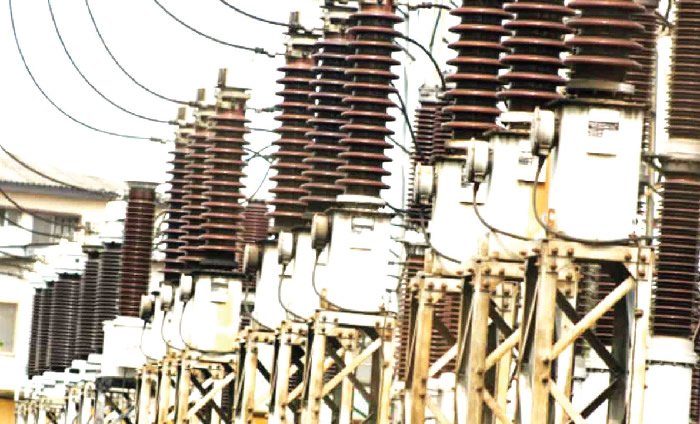Latest power privatisation must avoid 2013 farce

[ad_1]

AS the Federal Government sets out to privatise additional electricity power assets, the transaction managers must avoid repeating the treachery of 2013 that gifted 11 distribution and six generating companies to unprepared investors and thereby dismayed businesses and deepened the misery of Nigerians.
The request for Expressions of Interest by the National Council on Privatisation and the Niger Delta Power Holding Company in respect of five generation plants is necessary and long overdue but comes at a time that the divestment programme is viewed with some distrust. The administration of Goodluck Jonathan dealt Nigerians a bad hand in the asset sales of 2013; the President, Major General Muhammadu Buhari (retd.), and today’s NCP and BPE helmsmen should not re-enact the travesty.
The benefits of privatisation in attracting investment, promoting competition, efficiency and innovation have been proven over time. It also frees the public treasury of expenditure that can be deployed in critical infrastructure, education, health, and sanitation. Sadly, some past flawed transactions make many Nigerians sceptical of the advertised benefits of privatisation. But though there have been mixed results worldwide, power privatisation has overall generally resulted in advantageous outcomes. Nigeria can optimise its benefits by avoiding its own, and others’ missteps.
The disappointing aftermath of the 2013 power asset sales is particularly unsettling. Years of abysmal service delivery and crushing debt that have recently culminated in five DisCos being taken over by creditor banks, confirm the hollowness of that exercise.
Its objectives to free government of expenditure on the business, realise income from the sales, attract foreign and domestic private investment, radically raise output and efficiency in generation, distribution, and transmission, increase power infrastructure and attract technical and managerial expertise, have not materialised.
Instead, it has engendered regression in the country’s economic profile by failing to significantly raise capacity and supply, thereby inhibiting production and businesses. Rather than the expected FDI, the effete investors relied on the domestic banking system for funds, hence denying the SMEs and other critical sectors of the economy of needed credit and power supply. Borrowings by the operators that emerged from the sale of 17 of the 18 companies unbundled units from the defunct Power Holding Company of Nigeria have become problematic. Combined, power sector operators’ indebtedness to banks reached N861.14 billion, according to the Central Bank of Nigeria.
Moreover, public funds injected into the system since 2013 have hit N2.9 trillion. This is terrible.
The divestment strategy envisioned under the Electric Power Sector Reform Act 2005 and the subsequent Roadmap for Power Sector Reform 2010, sought to attract investors with appropriate funds and technical expertise to lead in this commanding height of the economy. Such investors would be channels of capital inflow to Nigeria, and human capital with the necessary clout and managerial competence. The strategy demands that the government would focus on creating an enabling environment, including regulation.
Currently, the sole transmission power that remains state-owned can hardly convey beyond 4,000 megawatts. Though generating capacity has risen from just under 3,000MW in 1999 to about 12,522MW, this has come mainly from plants built at huge costs borne jointly by the federal, states and local governments. Investment by the DisCos and GenCos has been minute. In nine years, the DisCos’ capacity has increased by only 19 percent. Thus, while Nigeria’s continental economic rivals – Egypt and South Africa – have raised generating capacity in the last decade from 24,000MW to 59,000MW, and from 42,00MW to 58,000MW respectively, Africa’s largest economy makes do with barely 4,000MW supply daily.
Buhari, the NCP and BPE should bear this in mind; emergency investors and corrupt officials should not be allowed to sabotage national aspirations this time around.
The BPE should purge its ranks of ethically-challenged functionaries, who could compromise the integrity of the exercise to advance selfish interests. It should stick to the laid down guidelines. As statutory chairman of the NCP, Vice-President Yemi Osinbajo should take a strong interest in ensuring the qualitative success of the sale.
Certain issues should also be resolved before the sale is sealed. As pointed out by the House of Representatives, the NDPHC, which built the plants, is jointly owned by the Federal Government (46.9 per cent), the state governments (35.5 per cent), and the local governments (17.6 per cent). They cannot be unilaterally sold by BPE without the express consent of the states and LGs. The resolution by the House asking that the exercise be suspended is therefore in order. The NCP should engage with the state and LGs.
Thorough due diligence should be done this time. Using the leeway under the law, the transaction managers should not be enslaved by the ‘highest bidder’ consideration. Financial, technical, and managerial know-how, as well as corporate integrity, should be the overriding factors. For too long, incompetent investors and speculators have with the collusion of officials, outbid everyone just to corner assets, only to thereafter go shopping in the domestic banks for funds to pay for their acquisition. This way, they deprive the country of the needed FDI, jobs and infrastructure. The Privatisation Act has wiggle room for ‘targeted investors,’ the BPE should consider this option to bring in the most competent international operators.
Nigeria needs a robust energy industry to power productive activities in all sectors of the national economy, and stimulate growth and development. The World Bank’s Development Research Group found that power sector reforms and privatisation in many countries had improved efficiency and productivity. It said reforms alleviate poverty “and promote the welfare of the poor.”
Nigeria has the lowest access to electricity worldwide with 92 million persons without access, according to the SDG’s Energy Progress Report 2022. Reversing this sordid statistic should be paramount to the federal and state governments. After sorting out all legal issues, the NCP and BPE should handle the auction with the greatest sense of responsibility; free of the corruption, cronyism and manipulation that made the 2013 a national disaster.
[ad_2]



